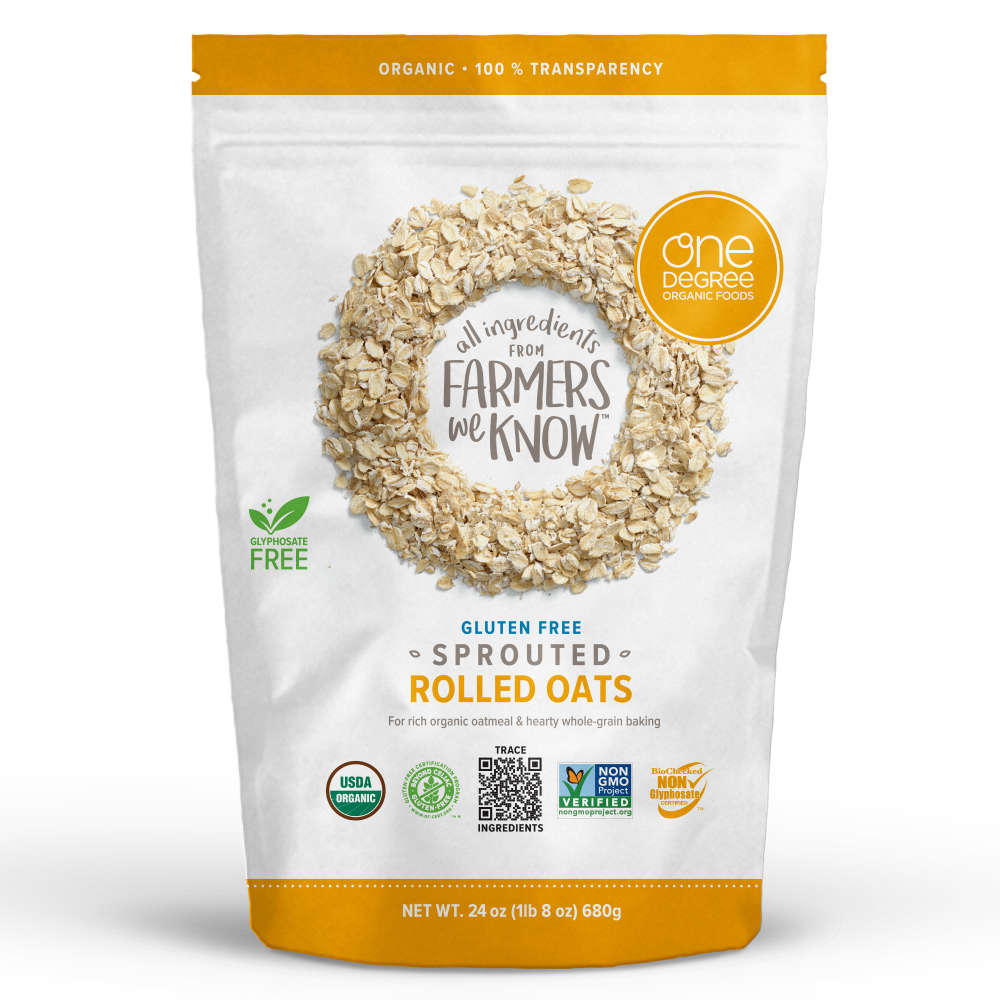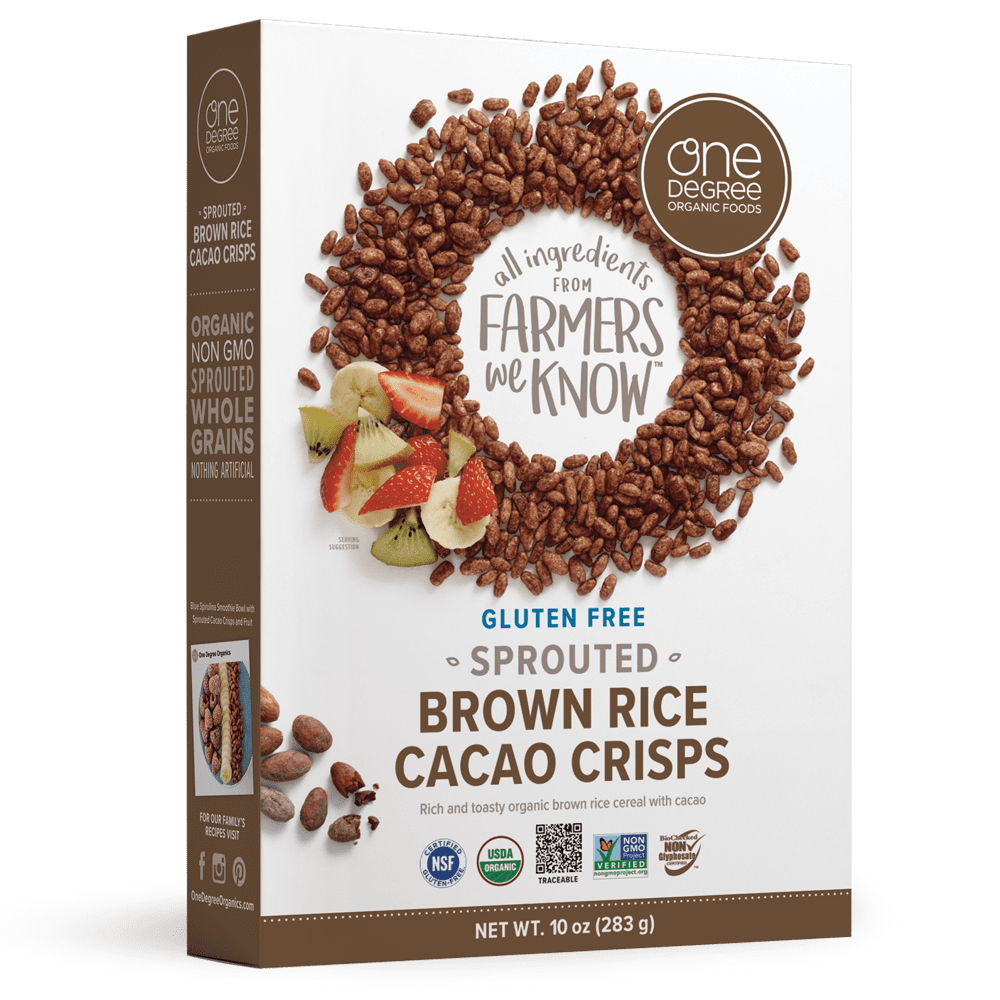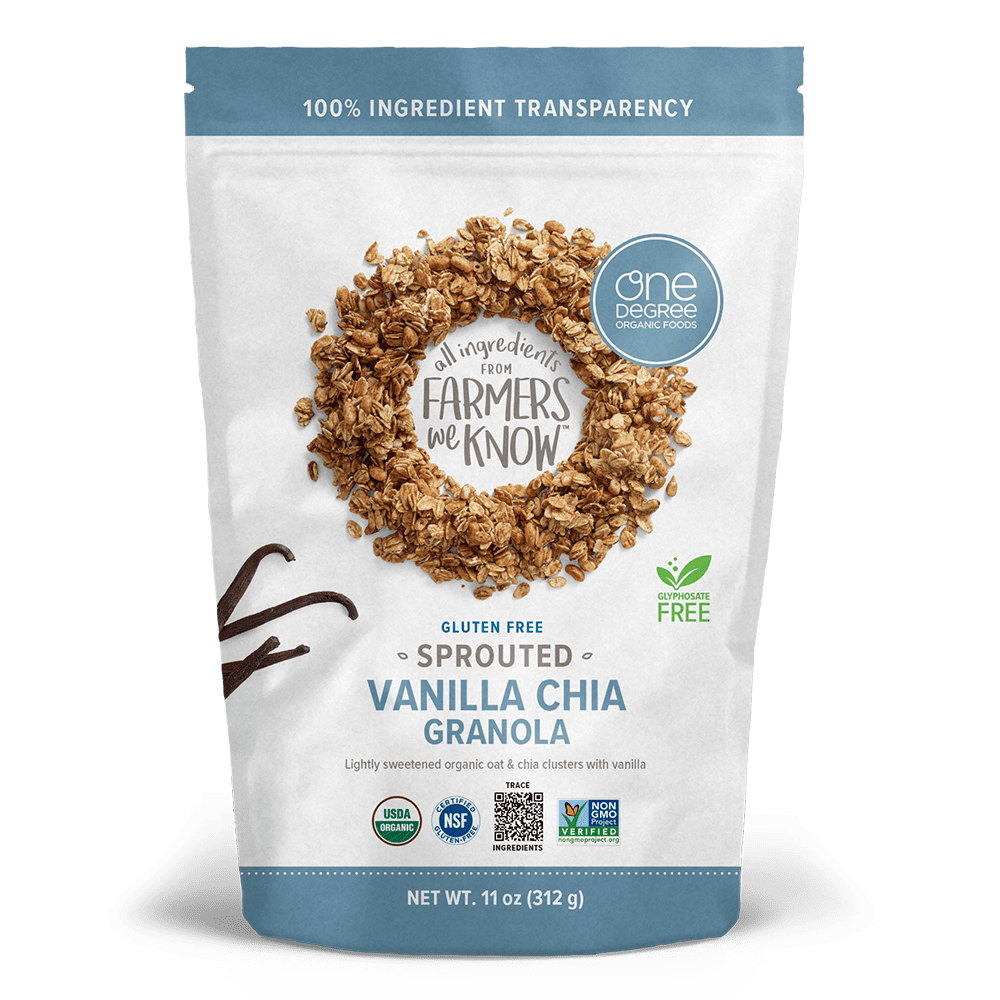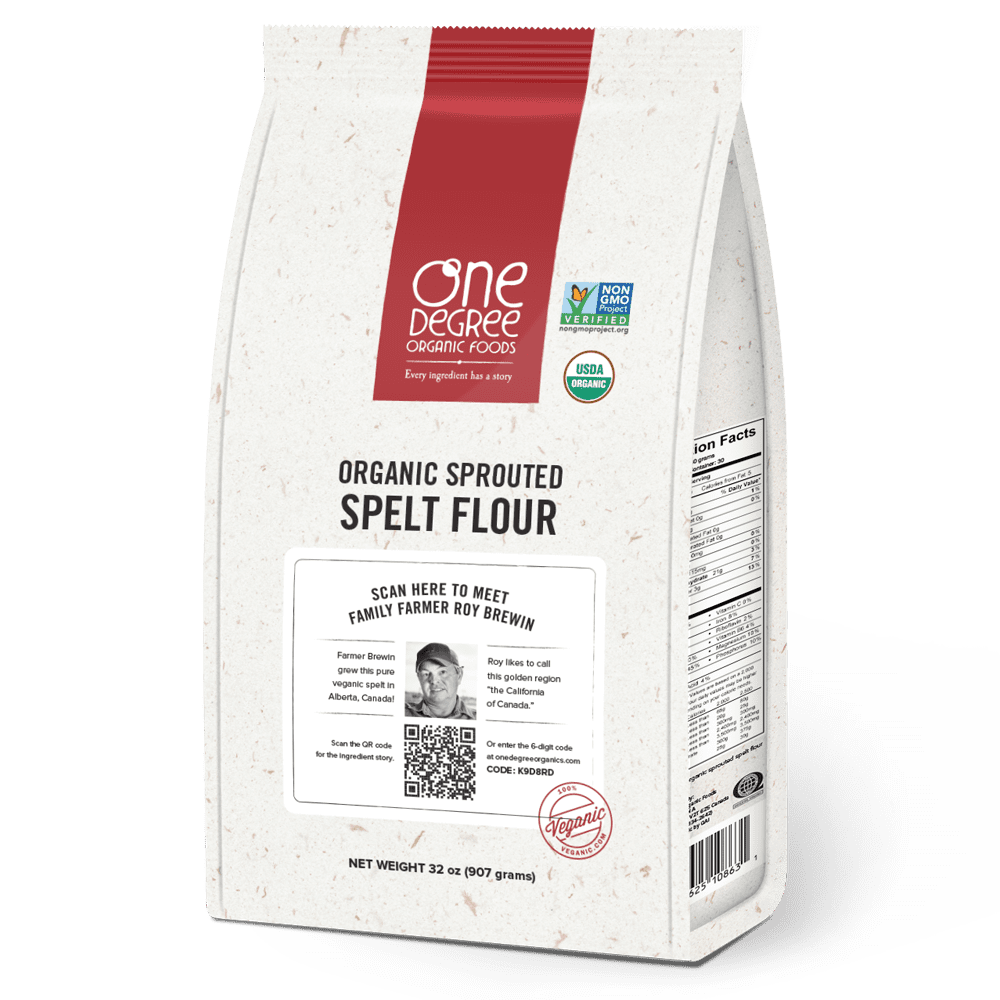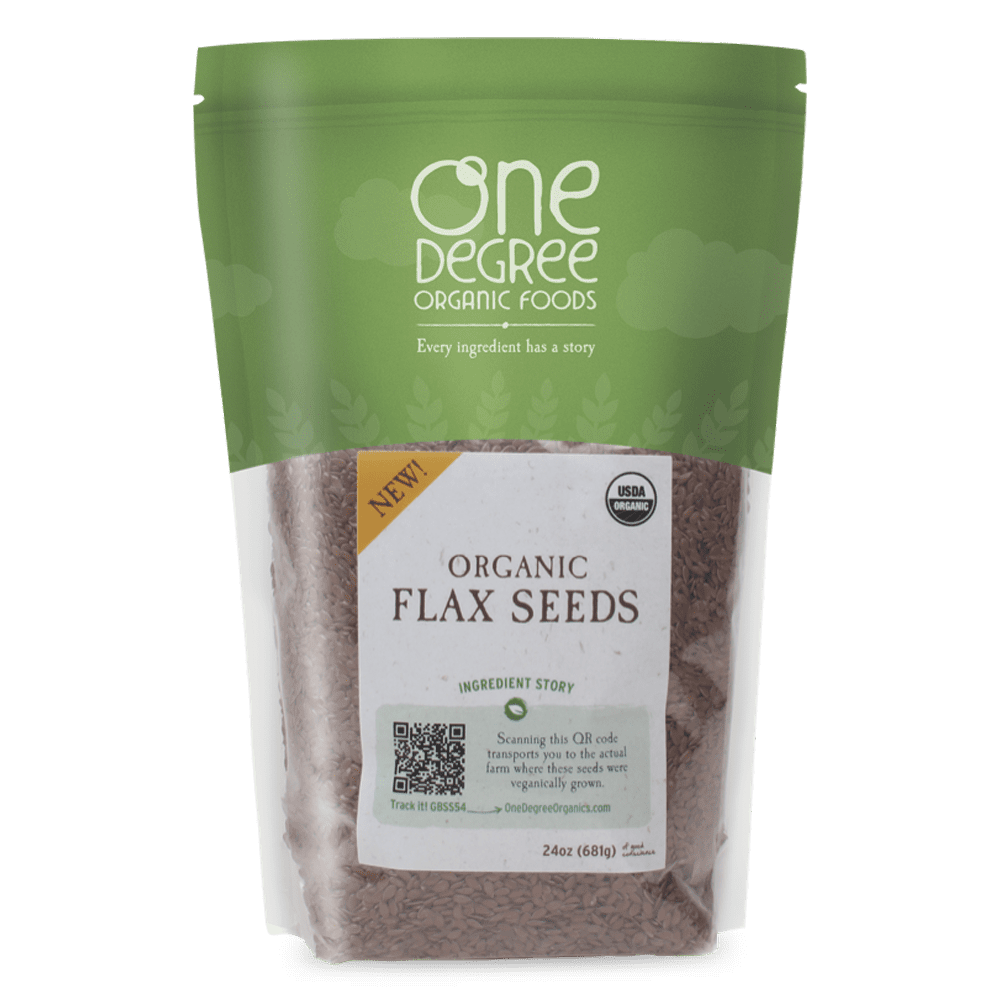Brown Rice Syrup
California Natural Products
Savor your first spoonful of One Degree’s new Sprouted Oat Quinoa Cacao Granola and your taste buds will thrill to the smoothly balanced touch of sweetness.
That’s partly the result of Pat Mitchell’s lifelong passion for perfecting a particularly tricky natural ingredient: brown rice syrup. A second-generation farmer, agronomist and founder of California Natural Products, Mitchell invented and patented the natural processes for making rice syrup and rice milk in the early 1980s.
“When I got into this business, my mantra was that I was going to make [health food] products taste as good as or better than conventional products,” says Mitchell. His secret: a food scientist’s careful calibration of the natural enzymatic process that breaks down foods—in this case, rice.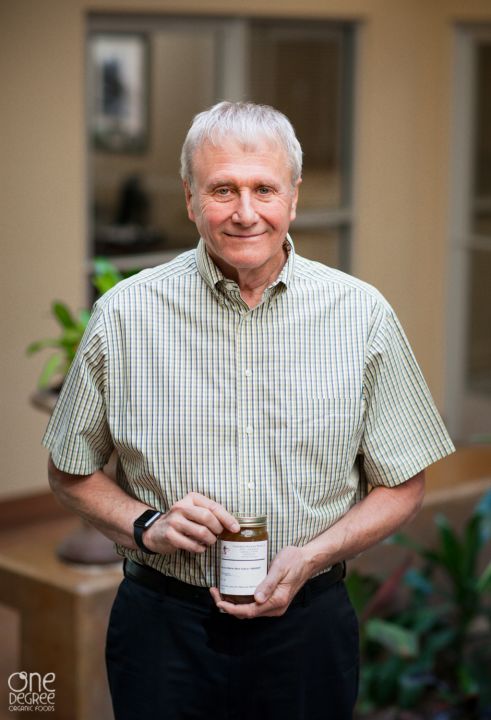
Raised on the farm his family bought back in 1942 in central California’s San Joaquin Valley, Mitchell learned to farm from his father, whose operation grew an abundant array of fruits and vegetables: melons, tomatoes, cucumbers, squash, sweet corn, as well as alfalfa and wheat. After earning a degree in agronomy at Fresno State University, Mitchell returned home and kept farming—but was always tinkering with food chemistry projects to figure out how to make various ingredients work better in food products. In 1980, he founded his own company, California Natural Products, on the family property.
Soon, Chico-San, an early natural foods manufacturer known for its best-selling rice cakes, hired Mitchell as a consultant to troubleshoot its rice syrup-making process. To make brown rice syrup, natural enzymes are added to cooked rice. Known as alpha-amylase, these enzymes start to ferment and break down the starches, resulting in liquid that is reduced by evaporation to become a syrup.
Derived from a wild strain of bacteria, Chico-San’s enzymes were unpredictable. “They’d make ten batches and every one would be different,” Mitchell recalls. To get consistency, you must have controlled enzymes, Mitchell realized. “We invented the process as we went along,” he says. He experimented with equipment design and measured to determine the amount of time needed for the enzymes to reach optimal potency. The result: consistently high-quality syrup.
“Enzymes are found in food products and in your body naturally. They break down different types of food in your body and in nature. They’re necessary in all forms of life,” Mitchell explains. Enzyme-rich foods help promote digestion. Fresh or lightly cooked vegetables and fruits contain live enzymes; papaya, pineapple and fermented foods like sauerkraut and kefir are especially high in enzymes.
The biggest difference between these two sweeteners is that only one starts with a whole grain, an organically grown one in the case of One Degree. “With corn, they strip everything out of it except the starch and then convert it to high-fructose corn syrup. The only thing you have left is that sugar profile,” Mitchell says. “With brown rice syrup, we start with the whole grain, so you get all those micronutrients and micro-constituents that naturally occur in the rice. We’re carrying a portion of those through to the finished product, so you’re getting the benefit of those micronutrients.”
Also, 95 percent of both corn and enzymes used in conventional food production are GMO, says Mitchell, whose company only used certified-organic acceptable enzymes—along with organic brown rice for the syrup it makes for One Degree.
Recognized as a pioneer and innovator in the natural foods world, Mitchell says humbly, “Our commitment all along has been to make healthy products that taste good.” California Natural Products is firmly committed to sustainability and environmental stewardship. Its operations support more than 6,000 acres of organic farmland, through purchases of organic rice, soybeans, vegetables and wine grapes. An award-winning water treatment plant reclaims all wastewater from its facility, purifying it to be reused for local crop irrigation.
Organic agriculture means more transparency for consumers, says Mitchell, citing the rigorous testing his company does on all organic ingredients and finished products. “I think people really like the idea that someone is more closely monitoring their food source and verifying the efficacy of it,” he says.
Mitchell is also passionate about the rich region where he was born and has flourished. California Natural Products recently won an award for “the oldest business in the city of Lathrop,” he proudly reports.
Fifty miles wide and 200 miles long, the San Joaquin Valley produces 25 percent of U.S.-grown vegetables and fruits grown, he says. Enthusing as perhaps only a lifelong farmer can, Mitchell says, “There couldn’t be in a richer place. Onions, potatoes, celery grow year-round, so you can make soups fresh all year long… We have beautiful soils, a beautiful climate, so you can grow almost anything here. You’ll never see anywhere else like it in the world. For us, we couldn’t be better situated.”
This deep love of place that leads to lasting relationships and local stewardship is one of the reasons there is a natural fit between California Natural Products and One Degree. We’re proud to include their wholesome sweetener in our foods, and to have innovators like Pat Mitchell on our team.
